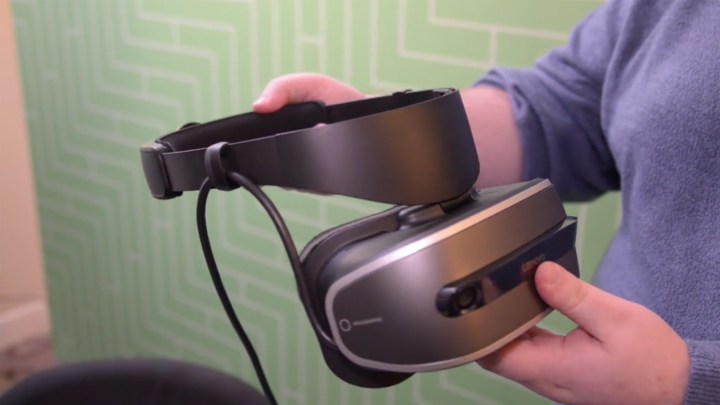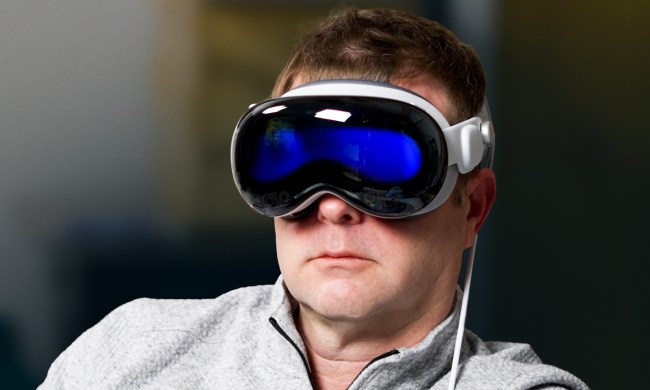
Lenovo is just one of a number of manufacturers said to be working on Windows-compatible mixed reality headsets and it may be one of the first to bring one to market. It showed off a mockup of the headset at this year’s Consumer Electronics Show and if its final capabilities are anything like its planned feature list, it could really shake up the VR and AR consumer market.
As part of the official Windows Mixed Reality partnership system, Lenovo has been in bed with Microsoft throughout the development of its device. Although designed to act as a virtual reality headset, it’s also planned to have forward-facing stereo cameras, which means it could deliver augmented reality, too. And it may be that before the kids go back to school at the end of the summer, we’ll get to play with it.
This was confirmed by Lenovo’s VP of consumer products in a talk with Twice (via RoadtoVR), whose statements were interpreted to mean we could expect the headset to arrive in time for the back-to-school season. We’re also told that he claimed the pricing for the headset was below that of the Oculus Rift, which if true, could make Lenovo’s VR offering a very competitive product.
That competition would only be compounded by some of the impressive features cited by Lenovo. Its headset will have a flip-up faceplate, for real world communication without removing the headset, as well as “inside-out” sensorless tracking. It will also have a higher resolution than the HTC Vive, which will provide some nice numbers for marketing to utilize.
As a general hardware manufacturer, too, Lenovo is in a prime position to market its headset alongside compatible laptops, which could go a long way toward increasing the uptake of virtual reality hardware. Indeed the Samsung Gear VR is the most popular virtual reality headset — after Google Cardboard equivalents — partly because of its bundling with Samsung smartphones.


